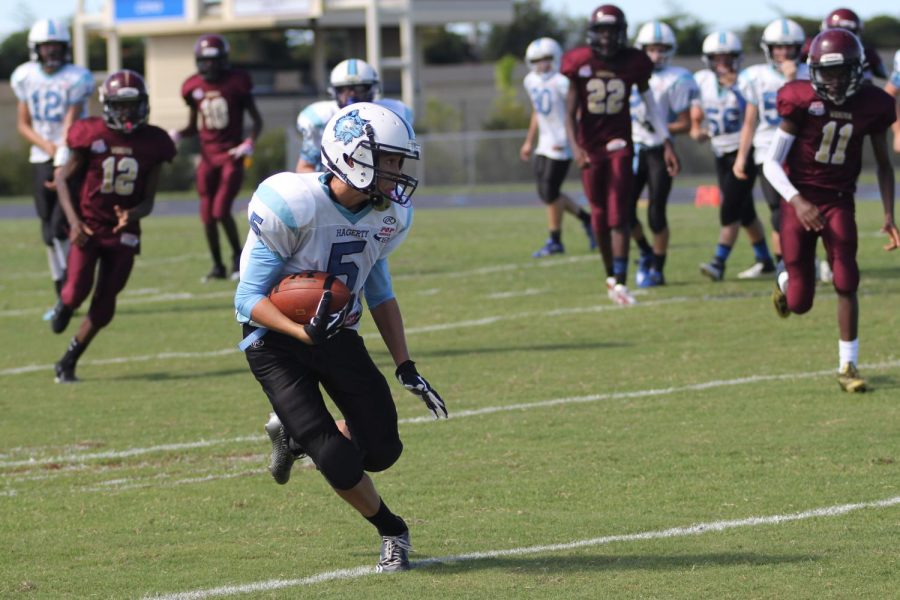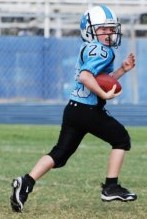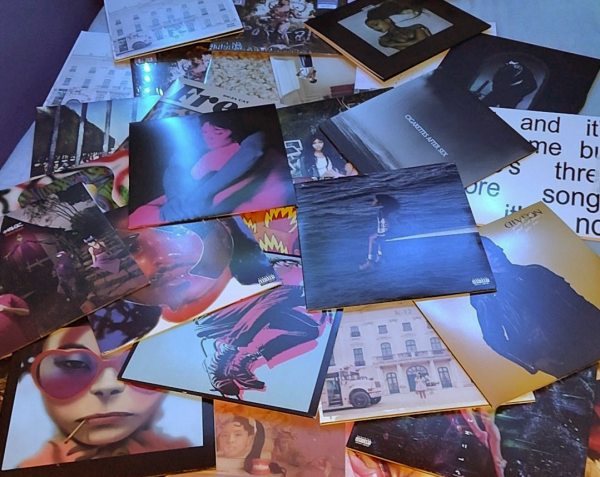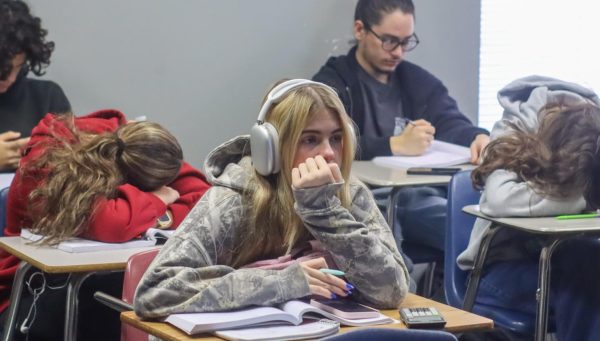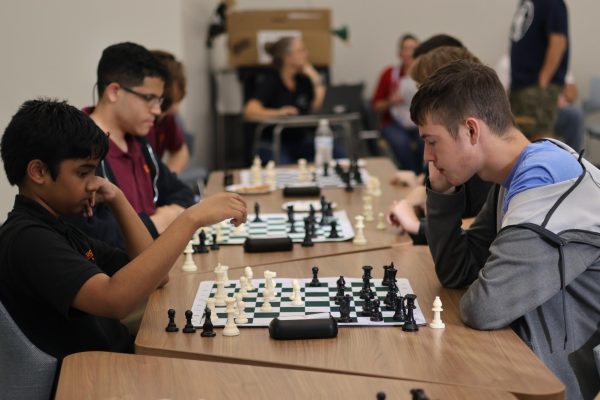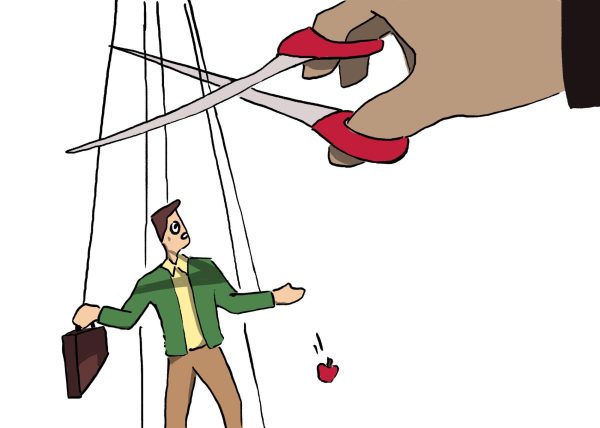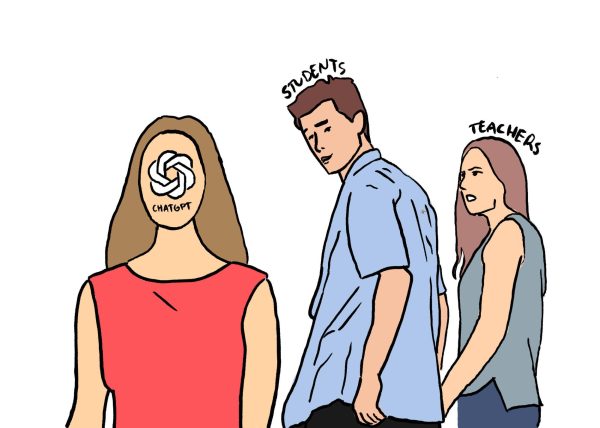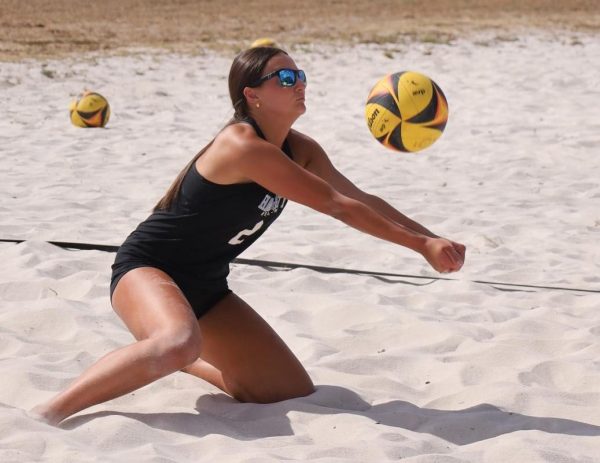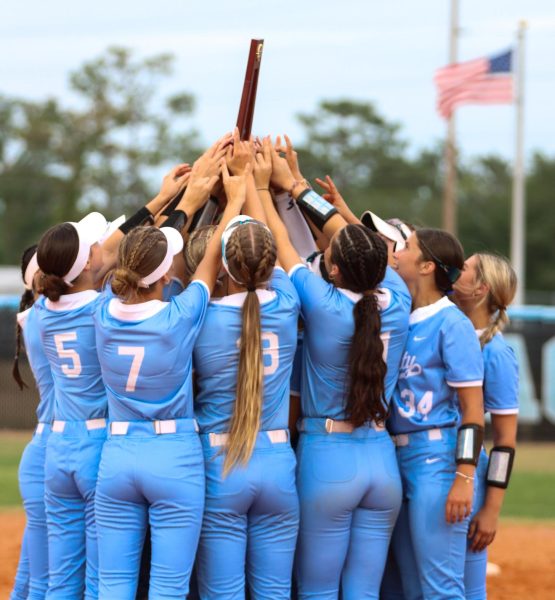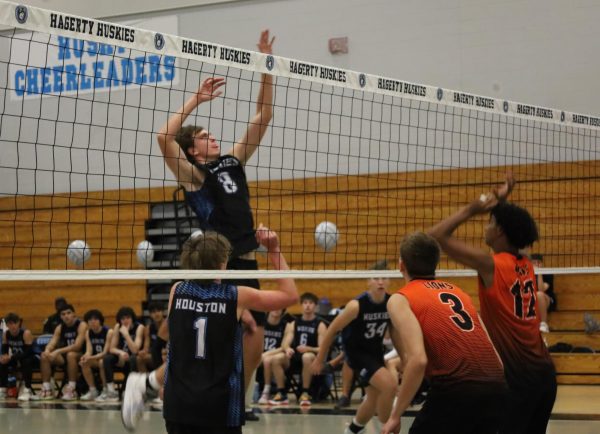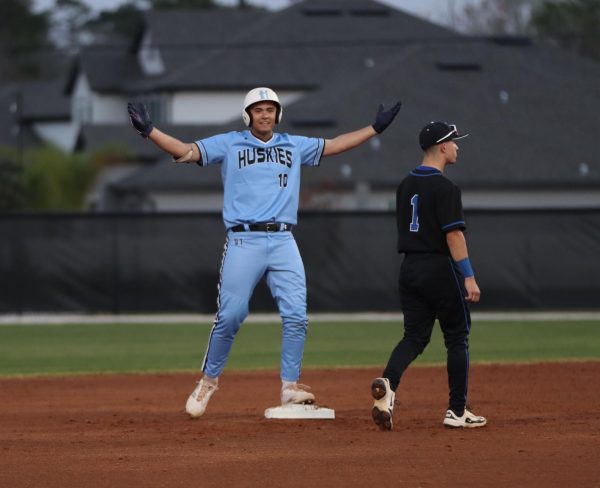A football life
Varsity players reflect on experiences in Pop Warner Program
photo by Sharon Sheridan
Caleb Lowe avoids incoming Wekiva defenders during a game against them during his 8th grade year in Pop Warner in 2014.
D.J. McCunney remembers his first touchdown in Sam Momary Stadium. It happened in 2009 under the August morning sun, during his first ever game in the Pop Warner program, with the young Tiny Mites, against Celebration.
The ball was snapped: the play, a quarterback sneak. McCunney received the ball from the center and rammed his way into the end zone for the first time.
“It was a different feeling from a sport than I’ve ever had before,” McCunney said. “I had my strikeouts and my big hits in baseball, but it was just so different to me. It meant more.”
McCunney, coming off the field after the game, was embraced by his father Jim McCunney, a big source of motivation, as well as a coach for his son throughout his time in Pop Warner, the largest youth football program in the nation with 325,000 players ranging from ages five to 16.
“Football is the ultimate team sport,” Jim McCunney said. “Everyone has to do their job well for one single play to work.”
McCunney went through the program playing a variety of positions, learning the different facets of the game, including the importance of being there for his team.
“[During] Midget year, I got my arm knocked out of socket after being hit and my team needed me,” McCunney said. “So, I went to the trainer, she popped it back in and the next play I threw a touchdown pass to my friend Trent Redding.”
McCunney has only recently joined Redding on the varsity team, finally realizing the dream he and Redding had about playing on the team together came true.
“It’s been a feeling that we’ve always wanted as kids, we always talked about the high school team and what it’s going to be like when we’re up there,” McCunney said. “It came to us a little earlier than we expected.”
Forty-seven percent of Pop Warner football players go on to play at the high school level, just like wide receiver Caleb Lowe.
After the McCunneys’ game ended that day, Lowe took the field with the Mitey Mites to begin his second Pop Warner season. His brother, All-SAC tight end and defensive end Kevin Lowe, watched from the bleachers, and Caleb was ready to follow his example.
“I just wanted to be like that,” Lowe said.
It would not be easy though. Unlike some youth football leagues, Pop Warner sorts its team divisions based on weight, not age. While this does lead to a more level playing ground within the team, sometimes there would be a team that has a majority of players at the upper end of the weight spectrum.
Lowe’s time in Pop Warner was littered with instances where he and his team weren’t able to win, not for lack of talent, but due to being out-muscled by the competition.
“I wasn’t that big of a kid, I was still in that mid-range and we were playing a lot of bigger teams,” Lowe said. “It was hard because I was so physically smaller and weaker to compete with those other kids.”
Despite this, Lowe and his teammates worked to become just as physically imposing as those kids.
One of Pop Warner’s core goals is to instill values such as these, like teamwork, dedication, and a superior work ethic.
This would pay off as Lowe would thrive playing at running back, defensive end. One moment he remembers vividly was when he forced and returned a fumble 70 yards for a touchdown against Wekiva during his season at the Unlimited level. He would also become a skilled wide receiver, a position he currently plays on the varsity team.
While there are players who join Pop Warner to learn and play the game, there are others that join for a spot of fun with their buddies. According to statisticbrain.com, 65 percent of youth sports players participate to play with friends.
Years before the Wekiva fumble return, Lowe advanced with his Pee Wee team to a Pop Warner postseason event at the Citrus Bowl, where they beat Winter Park and University to win the tournament. Also on that team was Oviedo Pop Warner transfer Nik Wiggins, but despite the shift in location, he and the team established a classic Pop Warner friendship.
“Our team was close,” Wiggins said. “So, we all motivated each other to be the best that we could be.”
Wiggins and Lowe would play three years together in Pop Warner before entering high school, which Lowe thinks creates a special relationship between the two.
“We have a connection on the field… like back at Pop Warner, because we know each other,” Lowe said.
Wiggins spent most of his Pop Warner career being coached by his father, Ed. Coaches like Nik’s father used the sport to teach the players discipline, and per statisticbrain.com, 85 percent of youth sport coaches are fathers coaching their own kids. However, that did not prevent general roughhousing. Linebacker Jackson Scott recounts one certain incident with Coach Wiggins.
“This one time, a few of my teammates thought it was a good idea to have a wrestling match during [a] water break…” Scott said. “…and when Coach Wiggins saw what was going on, we ran laps around the practice field for the last hour of practice.”
Single instances aside, like McCunney and Redding, Wiggins and Scott have played together in youth football for a long time—10 years—which Scott believes to be an advantage on the field when it comes to trust.
“[It] allows you to put all of your trust in them and believe in each other,” Scott said. “They’ll have your back which allows you to play to the best of your ability.”
Many other players, not just these five, took part in Pop Warner and are now on the varsity team, continuing their journey playing the sport they love, but instead of playing Saturday mornings, it is now Friday nights. They all may have had different experiences, but they all started young in a program that allowed them to grow and appreciate the game for what it was, no matter who they were, and be themselves.
“[Football] gives me a chance to be who I truly am, cause when you’re on the field it shows your true character,” McCunney said.
Your donation will support the student journalists of Hagerty High School. Your contribution helps us publish six issues of the BluePrint and cover our annual website hosting costs. Thank you so much!

